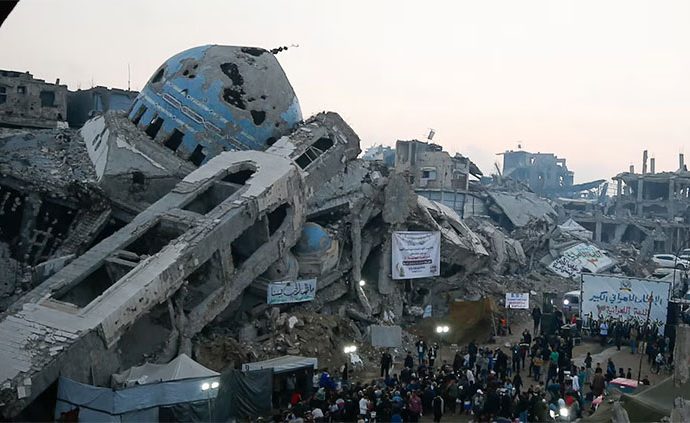JERUSALEM/CAIRO (Reuters) — The Israeli military claimed it targeted targets in Gaza early Tuesday, capping a weeks-long standoff over prolonging the truce that ended combat in January, with Palestinian health ministry officials reporting at least 100 deaths.
Strikes were reported in a number of places, including northern Gaza, Gaza City, Deir al-Balah, Khan Younis, and Rafah in the middle and southern Gaza Strip. According to officials from the Palestinian health ministry, several of the fatalities were minors.
The military, which claimed to have hit hundreds of targets, stated that the strikes would continue indefinitely and would go beyond air strikes.
The assaults were significantly larger in size than the Israeli military’s routine series of drone strikes against individuals or small groups of suspected terrorists, and they came after weeks of failed attempts to extend the cease-fire agreed upon on January 19.
According to Hamas, Israel has reversed the ceasefire deal, leaving the fate of 59 hostages in Gaza undetermined.
Israeli Prime Minister Benjamin Netanyahu’s office accused Hamas of “repeated refusal to release our hostages” and rejected offers from US President Donald Trump’s Mideast envoy, Steve Witkoff.
“Israel will, from now on, act against Hamas with increasing military strength,” it added in a statement.
In Washington, a White House spokeswoman stated that Israel engaged with the US government before carrying out the attacks, which the IDF said targeted mid-level Hamas commanders and senior figures, as well as terrorist infrastructure.
Negotiating teams from Israel and Hamas were in Doha as Egyptian and Qatari mediators attempted to bridge the gap between the two sides following the end of an initial phase of the ceasefire, which saw 33 Israeli hostages and five Thais returned by militant groups in Gaza in exchange for approximately 2,000 Palestinian prisoners.
Israel has been pressing for the release of the remaining 59 captives in Gaza in exchange for a longer-term cease-fire that would have halted combat until after the Muslim fasting month of Ramadan and the Jewish Passover holiday in April.


